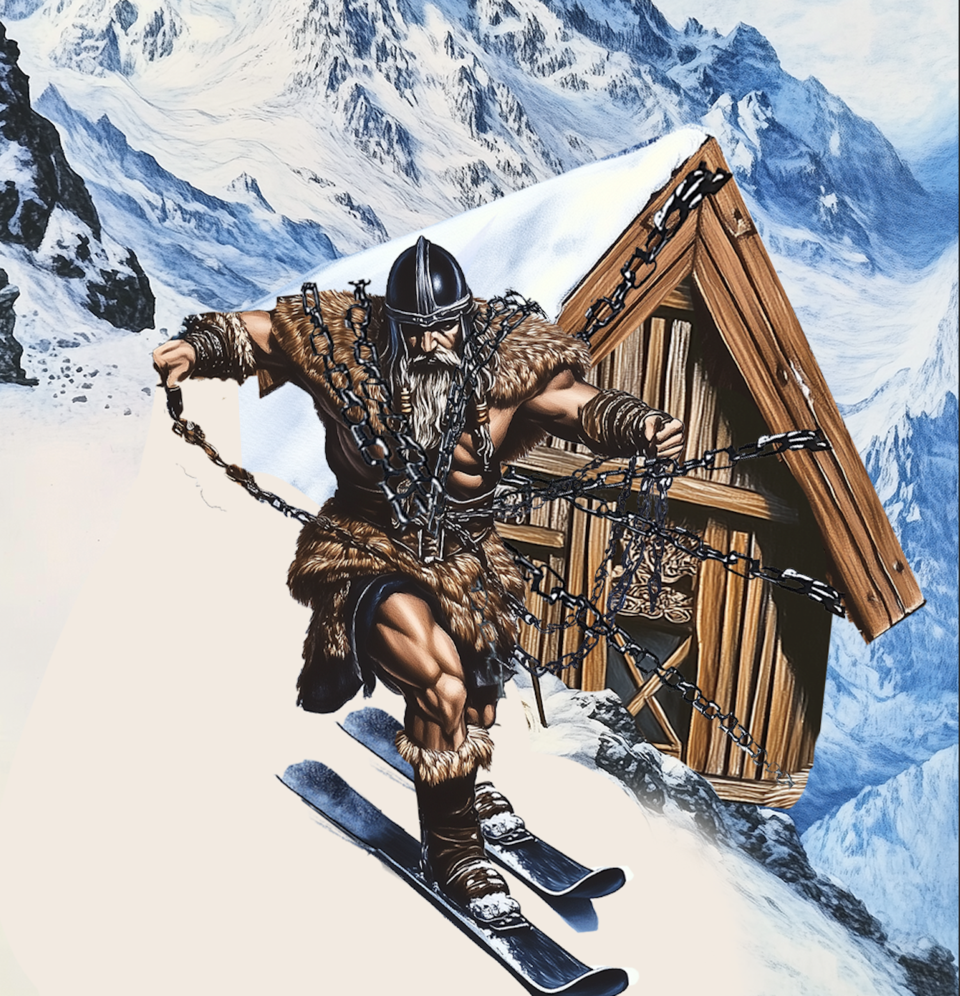There’s something so silly about being a skier in the spring. While in the middle of winter, we could arguably be accused of taking ourselves (and our sport) a little too seriously, that’s never the case once the sun comes out.
Whether you prefer testing the limits of the “death before download” creed, or hiking with your skis for miles in the dirt in search of the snowline, there’s something wonderfully absurd about our collective commitment to sliding on snow at this time of year. For me, it’s the very best of mountain culture—illogical, optimistic, and sublimely ridiculous.
Which is a stark contrast to how things look from a global perspective right now. At times like this, it’s easy to question whether the hours we spend messing around in the mountains matter. Should we be doing something more useful with all that time, energy, and money?
I was thinking about this while doing some quintessentially silly spring skiing over the Easter weekend. We spent three days side-stepping through creeks and survival skiing through thawed-out forest to a backcountry hut, in the hopes that the corn gods would be good to us. They weren’t, so once we’d skied the best of the crust, we passed the hours drinking tea and leafing through old copies of the Varsity Outdoor Club (VOC) Journal.
The journals detail the (mis)-adventures of UBC students dating back generations (the club was founded in 1917, and the first journal was published in 1958). At least half the stories included some drastic miscalculation of time/gear/food/ability, and the rest involved some sort of deliberately planned absurdity.
Taken together, the journals were a 60-plus year chronicle of the disproportionate energy and effort we’re willing to expend to make memories in the mountains. They were a compelling argument that, whatever is going on in the outside world, there’s something that does matter about the time we spend connecting with nature, and each other.
But if these experiences are just escapism, are they enough? At a time where there’s more than enough problems in need of solutions, I’d argue we can’t stop there. We need inspiration, and then we need to act—which is easier said than done.
As I drove back from the hut, content and covered in alder-induced scrapes and bruises, I listened to an interview with author Oliver Burkeman. In it, he spoke about how in Western culture we often equate “things that are worth doing” with “things that feel hard.”
What a succinct way to sum up our collective inertia. We feel like we must either suffer for the greater good, or selfishly turn our backs on bigger problems so we can have a good time. How many of us truly want to make that trade-off? And how quickly do we get suspicious when something seems both worthwhile, and, dare I say it… fun?
Yet I think those of us lucky enough to live in the mountains know that’s not really the choice we face. It’s perfectly possible to do things that matter and have a great time in the process.
Take this story I stumbled across: a couple summers ago, the roof of one of the VOC huts collapsed, and they launched a mammoth effort to repair it before the whole hut gave out for good.
A new roof was designed, fundraised for, and built by dozens of students and alumni. Only a few had any technical knowledge—most showed up with naive enthusiasm, a willingness to forgo sleep, and figured it out on the fly.
By the end of the summer, the hut had a new roof, preserving it for backcountry adventurers for decades to come. The team members were tired, dirty, and extremely proud of what they’d achieved. And as their trip reports made clear, they’d also had a hell of a lot of fun.
We’ve all had experiences like this. But the idea that we can solve difficult problems, while also having a great time, is rarely taken seriously—and it should be. As long as we’re sold a stark choice—between fixing the things that are broken, or having fun—we’re liable to stay stuck, either spiralling in an endless doomscroll, or wilfully ignoring the “real world” and running away to the hills.
We should ask ourselves: who does it serve when those are our only options? And what would be possible if we tried a different, sillier way to do things that matter?
Lizi McLoughlin is a local non-profit leader, an average-but-enthusiastic mountain athlete, and an eternal optimist.




